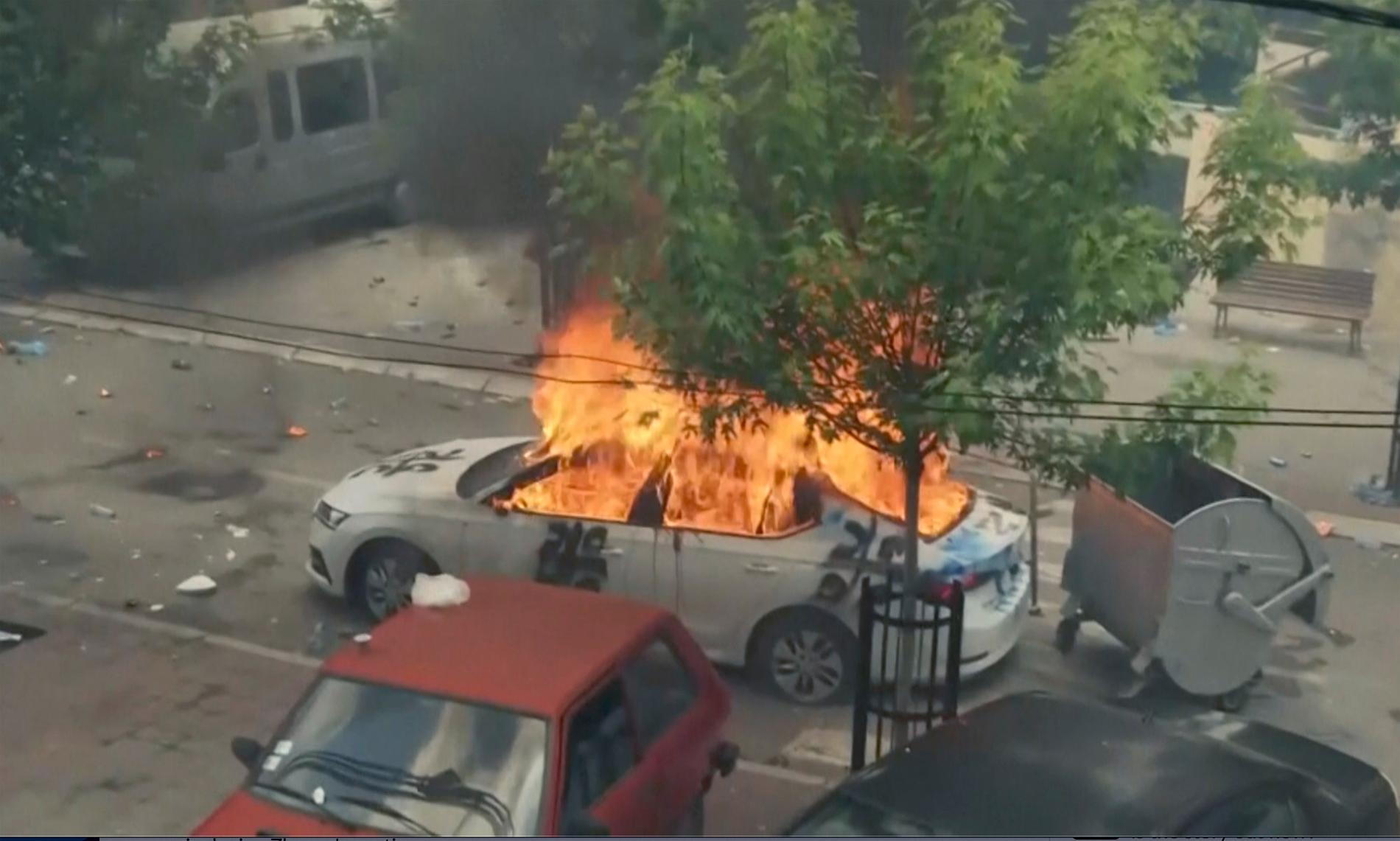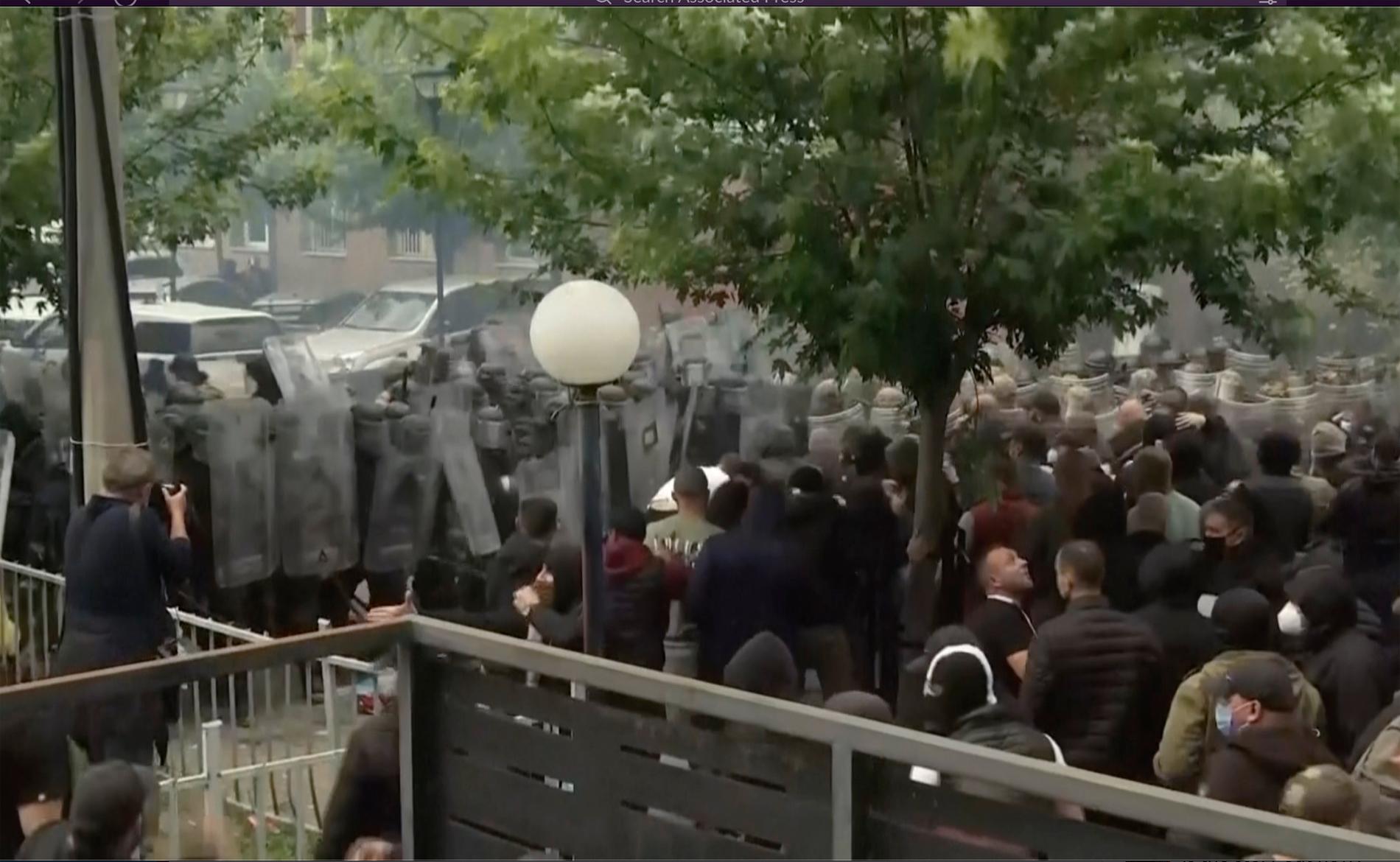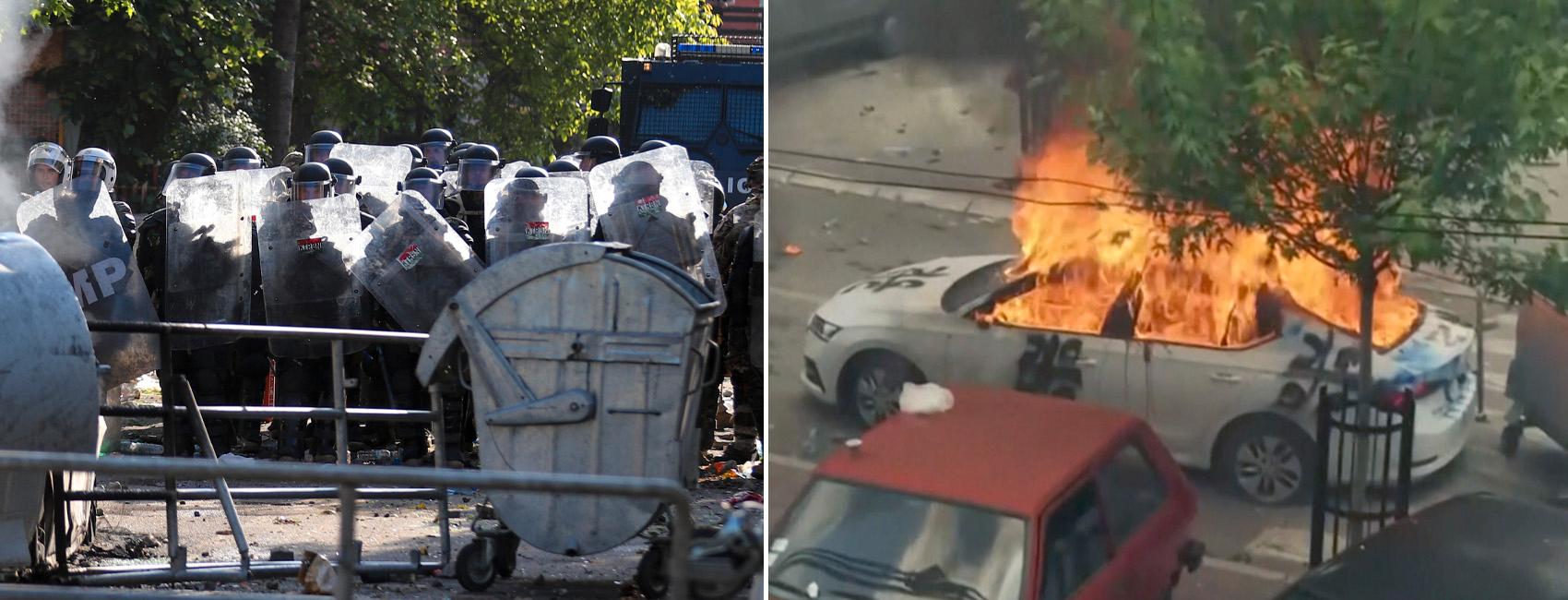Bildt: "The worst seen in many years"
Kosovo
Of:
Nivette Dawod
Published: Today 14.22
Updated: Less than 20 min ago
NEWS
30 NATO soldiers are injured after the clash with Serbian demonstrators in northern Kosovo.
The situation in the area is described as the worst in many years.
"Both parties must take full responsibility for what happened and prevent further escalation," said Angelo Michele Ristuccia, the major general leading the NATO operation.
Several days of unrest in northern Kosovo escalated on monday night into a clash between the NATO-led international peacekeeping force Kosovo Force (Kfor) and Serbian protesters.
Ethnic Serbs tried to enter the office of the recently elected ethnic Albanian mayor in the town of Zvecan, using tear gas, among other things, against the Kfor soldiers.
30 NATO soldiers, eleven Italian and 19 Hungarian, were injured, according to a press release from NATO. Several of them suffered fractures and burns, three of the Hungarian soldiers are said to have received weapons-related injuries, which, however, are not life-threatening.
Prolonged conflict
The unrest has its background in the conflict which has been going on for many years and which largely took place in four municipalities in northern Kosovo where Serbs are in the majority.
The Kosovo Albanians in Kosovo declared independence in 2008, something that Serbia, which lost control of Kosovo in 1999, did not accept.
Burning car in the city of Zvecan.

Burning car in the city of Zvecan. Photo: AP

Boycotted local elections
Resistance in the Serb-dominated north against the government in Kosovo's capital, Pristina, is strong.
Several conflicts have flared up over the years, including over which license plates on cars should be allowed, and the latest involved Serbs leaving all jobs in the northern municipalities and subsequently boycotting the local elections that the government announced in April.
When the four mayors were to take up their posts on Friday, the unrest flared up again.
"Enlivens the mood"
The EU has several times arranged conferences and concluded agreements between the parties on so-called "normalisation dialogue" - that relations should be normalised.
The latest agreement was concluded last spring and was then described as a success.
Now the situation is called "the worst seen in many years" by Carl Bildt, former moderate foreign minister who in the 1990s was also a diplomatic envoy in Bosnia-Herzegovina. He said on Tuesday morning to Sweden's Radio program P1 Morgon that the development now risks going "really backwards":
- It stirs up the mood both in Kosovo and Serbia and in the area itself, northern Kosovo, and makes it more difficult to follow the steps agreed upon in terms of normalization.

The unrest escalated on Monday. Photo: AP
"Not much is required"
He also said that more violent incidents cannot be ruled out.
- Once a cycle of escalation has started, it doesn't take much for something further to happen.
The situation in northern Kosovo is now very tense.
There are very militant Serbs and very militant Kosovar Albanians, they may be a minority but it doesn't really matter, they can cause problems.
Bildt also said that the most important thing now is to bring about new normalization talks.
The EU condemns
Similar voices come from EU foreign affairs chief Josep Borrell, who condemned the events:
"We expect the parties to act responsibly and find a political solution through dialogue immediately," he wrote on Twitter on tuesday.
Angelo Michele Ristuccia, the Major General who leads the Kfor mission, also said in a press release:
- Both parties must take full responsibility for what happened and prevent further escalation, rather than hiding behind false narratives.

Inga kommentarer:
Skicka en kommentar